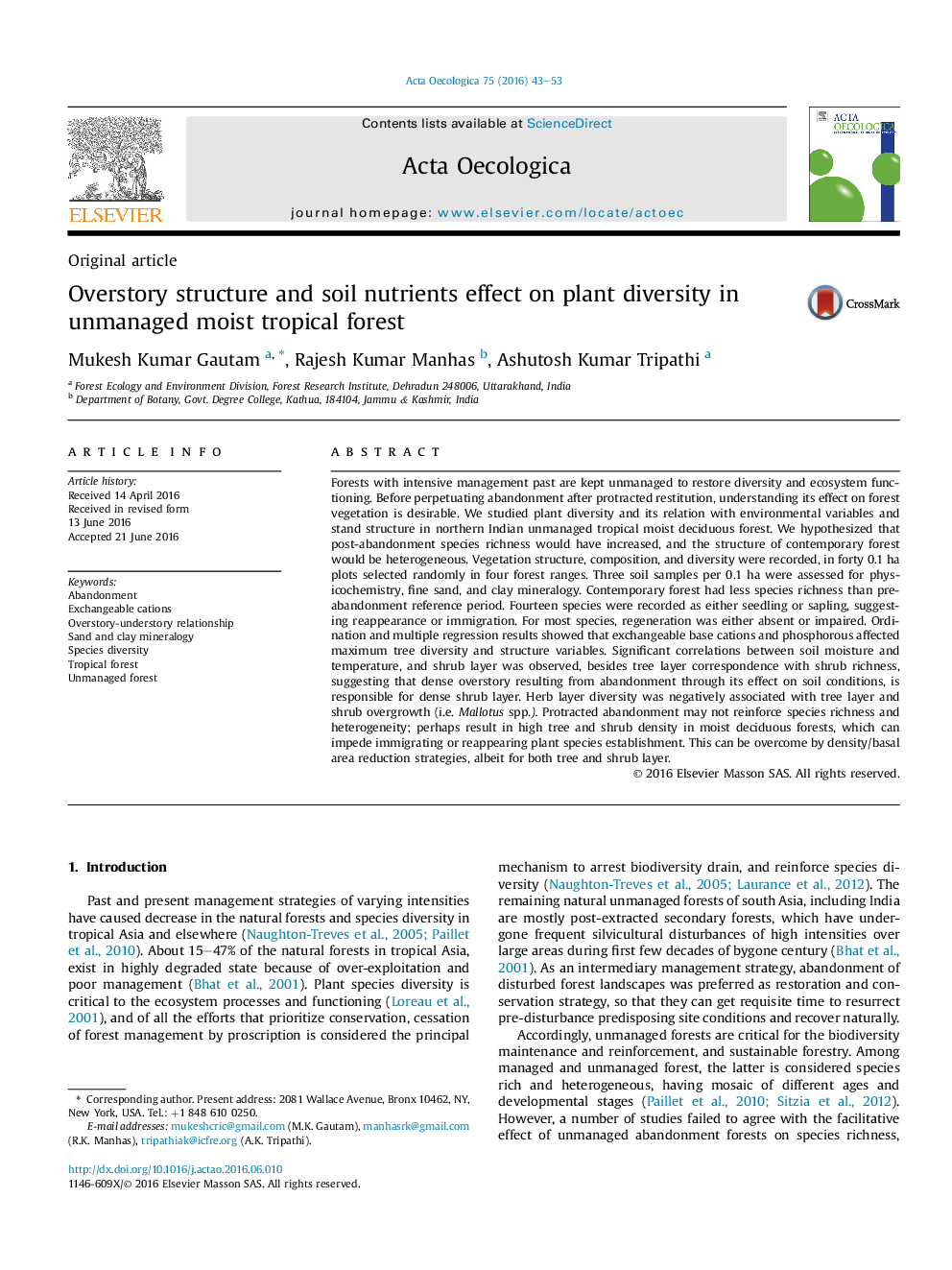| Article ID | Journal | Published Year | Pages | File Type |
|---|---|---|---|---|
| 6297328 | Acta Oecologica | 2016 | 11 Pages |
Abstract
Forests with intensive management past are kept unmanaged to restore diversity and ecosystem functioning. Before perpetuating abandonment after protracted restitution, understanding its effect on forest vegetation is desirable. We studied plant diversity and its relation with environmental variables and stand structure in northern Indian unmanaged tropical moist deciduous forest. We hypothesized that post-abandonment species richness would have increased, and the structure of contemporary forest would be heterogeneous. Vegetation structure, composition, and diversity were recorded, in forty 0.1Â ha plots selected randomly in four forest ranges. Three soil samples per 0.1Â ha were assessed for physicochemistry, fine sand, and clay mineralogy. Contemporary forest had less species richness than pre-abandonment reference period. Fourteen species were recorded as either seedling or sapling, suggesting reappearance or immigration. For most species, regeneration was either absent or impaired. Ordination and multiple regression results showed that exchangeable base cations and phosphorous affected maximum tree diversity and structure variables. Significant correlations between soil moisture and temperature, and shrub layer was observed, besides tree layer correspondence with shrub richness, suggesting that dense overstory resulting from abandonment through its effect on soil conditions, is responsible for dense shrub layer. Herb layer diversity was negatively associated with tree layer and shrub overgrowth (i.e. Mallotus spp.). Protracted abandonment may not reinforce species richness and heterogeneity; perhaps result in high tree and shrub density in moist deciduous forests, which can impede immigrating or reappearing plant species establishment. This can be overcome by density/basal area reduction strategies, albeit for both tree and shrub layer.
Related Topics
Life Sciences
Agricultural and Biological Sciences
Ecology, Evolution, Behavior and Systematics
Authors
Mukesh Kumar Gautam, Rajesh Kumar Manhas, Ashutosh Kumar Tripathi,
